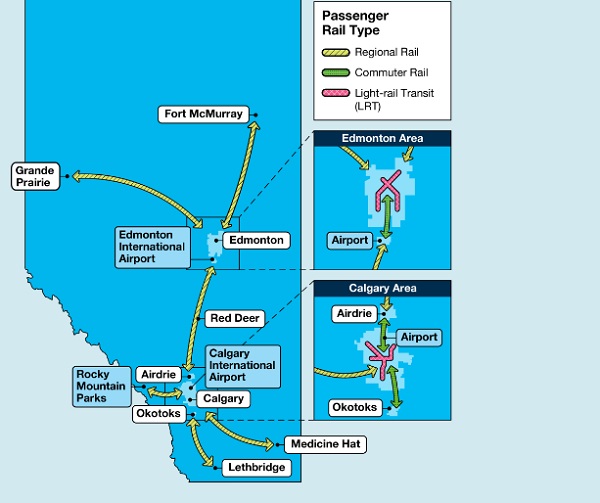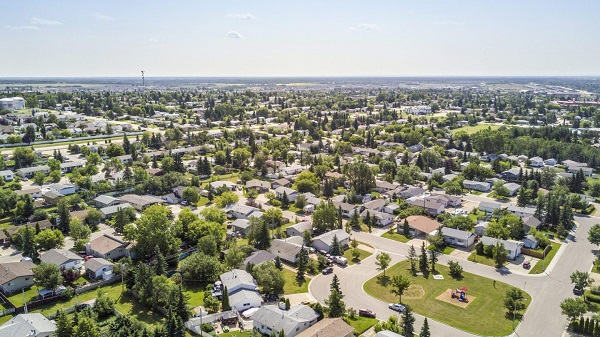Alberta
Never again! Preston Manning review recommends Emergency Management Agency co-ordinate response to future province-wide public emergencies.

Emergency Review Panel Releases Final COVID-19 Report and Recommendations for the Alberta Government
The Public Health Emergencies Governance Review Panel, led by Preston Manning, delivered its final report to the Government of Alberta, which includes over 90 recommendations for consideration.
The Panel was tasked by Premier Danielle Smith with undertaking a detailed review of the legislation and governance employed during the COVID-19 crisis, and to recommend changes and additional legislation to better prepare the province to meet future public emergencies. The mandate of the Panel was not to conduct an overall inquiry into the government’s response to COVID-19, but strictly to review the statutes that provided the legal basis for the government’s response to COVID-19.
Drawing upon the expertise and research of advisors and contractors commissioned for the study, the Panel arrived at a series of conclusions and recommendations for the Alberta Government to consider.
The recommendations of the Panel fall into three main categories, and included:
- Improving the focus and performance of the administrative and regulatory framework used to respond to provincewide public emergencies, including:
- Strengthen the Alberta Emergency Management Agency (AEMA) through legislative amendments and budgetary provisions to make it the lead government agency responding to and coordinating the response of the Alberta government to future provincewide public emergencies, including health emergencies.
- Develop and maintain a broadly-based Inventory of Scientific Advice and Scientific Advisors that can be drawn upon in the event of a public emergency.
- Mandate by legislation that preliminary, interim and post-emergency impact assessments be conducted in response to any future provincewide public emergencies.
- Reject provincewide school closures as a policy option in responding to a provincewide public emergency, except in the most exceptional of circumstances, and then only for the shortest possible period of time.
- Balancing the protection of Albertans from the harms caused by public emergencies with the protection of their basic rights and freedoms during an emergency period, including:
- Amend the Alberta Bill of Rights and Alberta’s Employment Standards Code and Health Professions Act to protect the rights and freedoms of all Albertans, including workers and healthcare professionals, and the freedom of expression during public emergencies.
- Increasing the overall capacity of Alberta’s healthcare system to respond to surges in demand caused by a public health emergency. Here, the Panel recognized that the government has already taken numerous incremental steps to increase the overall capacity of the healthcare system. The Panel commends those initiatives and recommends additional incremental steps, all compatible with the principles of universality and the Canada Health Act, including:
- Expanding the use of nurse practitioners and licensed practical nurses.
- Reducing or eliminating barriers to labour mobility for healthcare workers.
- Exploring options for attracting more healthcare providers into medical training
- Incentivizing medical graduates to serve in the most needed areas.
- Utilizing pharmacists to their full scope of practice.
- Expanding and improving the organization of home care services.
- Expanding the capacity of the Alberta healthcare system to deal with mental health.
- Expanding and supporting the use of virtual medicine and telemedicine.
- Streamlining system administration.
The panelists include Michel Kelly-Gagnon (President Emeritus of the Montréal Economic Institute), The Honourable John C. (Jack) Major CC KC (Former Supreme Court of Canada Justice), Preston Manning, PC CC AOE (former MP for Calgary Southwest and Leader of the Opposition in the House of Commons), Dr. Jack Mintz (president’s fellow of the School of Public Policy at the University of Calgary and a distinguished senior fellow of the MacDonald-Laurier Institute), Dr. Martha Fulford (Infectious Disease Specialist and Retired Chief of Medicine, McMaster University), and Dr. Robert Tanguay, Psychiatrist and Clinical Assistant Professor of Psychiatry and Surgery at the Cumming School of Medicine).
Quotes
“The COVID-19 pandemic and resulting global turmoil was unprecedented. Alberta, like the rest of the world, had to make decisions quickly and with limited, changing and even conflicting information. It is my hope that by adopting these recommendations, the Government will be better equipped to cope with future emergencies, and that the impacts on Albertans – their personal livelihoods, civil liberties, and mental health can be mitigated to the greatest extent possible.” – Preston Manning, Chair
“For the credibility of the study and our final recommendations, I felt it was important to select panelists and advisors with varied areas of expertise and perspectives on the key issues. For that reason, while there were certainly differences of opinion, I am thrilled that we were ultimately able to arrive at a consensus on the recommendations put forward.” – Preston Manning, Chair
Read the full report here.
Most Important Conclusions/Recommendation Per Chapter
- Strengthen, through legislative amendments and budgetary provisions, the Alberta Emergency Management Agency (AEMA) – whose members are specifically trained in emergency management – to make it the lead government agency for co-ordinating the response of the Alberta government to any and all future provincewide public emergencies. (Chapter 2)
- Appoint a Senior Science Officer, with multidisciplinary training and experience, to the AEMA, responsible for developing and maintaining a broadly based Inventory of Scientific Advice and Scientific Advisors that can be drawn upon in the event of public emergencies. (Chapter 3)
- Increase the effectiveness and accountability of the Alberta regulatory framework by increasing its evidence- based decision-making capacity, transparency, consistency, fairness, and self-correctability via feedback. (Chapter 4)
- Reject provincewide school closures as a policy option in responding to a provincewide public emergency, except in the most exceptional of circumstances and only then for the shortest possible period of time. (Chapter 5)
- Mandate by legislation the conduct of impact assessments prior to, during and after promulgation of orders and regulations for adoption in response to a declared provincewide public emergency. (Chapter 6)
- Recognize that public emergencies generate additional and exceptional pressures on governments to limit the exercise of rights and freedoms, and thus amend theAlberta Bill of Rights to specifically strengthen the protection of rights and freedoms under such circumstances. (Chapter 7)
- Increase the protection of the rights and freedoms of workers and healthcare professionals, during public emergencies, in particular their freedom of expression, through amendments to Alberta’s Employment Standards Code and Health Professions Act. (Chapter 8)
- Increase the overall capacity of the Alberta healthcare system, thereby increasing its capacity to meet surges in demand caused by public health emergencies, through the incremental measures proposed, while respecting the principle of universality and the provisions of the Canada Health Act. (Chapter 9)
- On the belief that Alberta can always learn from others, invite representatives from countries having healthcare systems that outperform Canada/Alberta to a Colloquium on 21st Century Healthcare Best Practices to identify the policies, legislation and features of their systems responsible for superior performance. (Chapter 9)
- The recommendations of this report are based on the general consensus of Panel members as to how best to prepare Alberta to cope with future public emergencies. But “preparing for future public emergencies” is an evolving process, subject to unforeseen factors and considerations. Therefore, alternative perspectives and narratives on how to best cope with future emergencies should also be welcomed, appreciated and examined.
Alberta
Passenger rail experts from across the world to inform Alberta’s Passenger Rail Master Plan

Alberta’s future runs on rails
Alberta’s government is bringing together passenger rail experts from across the world to share best practices and inform the province’s Passenger Rail Master Plan.
As Alberta experiences record growth and evolving transportation needs, passenger rail infrastructure and services will be vital for enhancing accessibility and connecting communities. To support this, Alberta’s government is developing a Passenger Rail Master Plan to build the optimal passenger rail system for the province.
As part of the development of the plan, Alberta’s government is hosting a one-day forum to provide an opportunity for Alberta communities, industry and experts to collaborate and share information on passenger rail opportunities and challenges. The forum includes experts from Ontario, Quebec, California, Italy, Spain and Japan who are involved in passenger rail procurement, governance and operations. The sessions will allow for the sharing of best practices and lessons learned on passenger rail planning and development.
“Alberta was built by innovators and visionaries who saw potential in our province and its people. They believed that if you could dream it, you could achieve it. We believe there is opportunity and demand for passenger rail services in Alberta. Today’s forum marks an important step forward in the development of our Passenger Rail Master Plan and in achieving our vision for passenger rail.”
In line with the province’s commitment to engaging Albertans throughout the development of the Passenger Rail Master Plan, a survey has been launched to seek public input on passenger rail. Albertans are invited to complete the online survey by Dec. 20 to help shape the future of passenger rail in Alberta. There will be additional opportunities for Albertans to have their say on passenger rail in the future, including regional open houses which will be held in early 2025.
“Feedback from Albertans, Alberta municipalities, Indigenous communities and industry will be critically important to developing passenger rail services in Alberta. I encourage all Albertans to complete the online survey to help inform a shared vision for passenger rail to enhance accessibility, efficiency, and connectivity across the province.”
In April 2024, Alberta’s government shared its vision for passenger rail and announced the development of the Passenger Rail Master Plan for Alberta. The province’s vision is for an Alberta passenger rail system that includes public, private or hybrid passenger rail, including:
- a commuter rail system for the Calgary area that connects surrounding communities and the Calgary International Airport to downtown
- a commuter rail system for the Edmonton area that connects surrounding communities and the Edmonton International Airport to downtown
- passenger rail that runs between Calgary and Edmonton and the Rocky Mountain parks
- a regional rail line between Calgary and Edmonton, with a local transit hub in Red Deer
- municipal-led LRT systems in Calgary and Edmonton that integrate with the provincial passenger rail system
- rail hubs serving the major cities that would provide linkages between a commuter rail system, regional rail routes and municipal-led mass transit systems
The vision includes a province-led “Metrolinx-like” Crown corporation with a mandate to develop the infrastructure and oversee daily operations, fare collection/booking systems, system maintenance, and planning for future system expansion.
Quick facts
- The Passenger Rail Survey will be open until Dec. 20.
- Alberta’s Passenger Rail Master Plan is expected to be completed by summer 2025 and will include:
- a comprehensive feasibility assessment
- financial and delivery model options
- governance and operations recommendations
- a 15-year delivery plan
- public engagement
Related information
Alberta
REPORT: Alberta municipalities hit with $37 million carbon tax tab in 2023

Grande Prairie. Getty Images photo
From the Canadian Energy Centre
Federal cash grab driving costs for local governments, driving up property taxes
New data shows the painful economic impact of the federal carbon tax on municipalities.
Municipalities in Alberta paid out more than $37 million in federal carbon taxes in 2023, based on a recent survey commissioned by Alberta Municipal Affairs, with data provided to the Canadian Energy Centre.
About $760,000 of that came from the City of Grande Prairie. In a statement, Mayor Jackie Clayton said “if the carbon tax were removed, City property taxes could be reduced by 0.6 per cent, providing direct financial relief to residents and businesses in Grande Prairie.”
Conducted in October, the survey asked municipal districts, towns and cities in Alberta to disclose the amount of carbon tax paid out for the heating and electrifying of municipal assets and fuel for fleet vehicles.
With these funds, Alberta municipalities could have hired 7,789 high school students at $15 per hour last year with the amount paid to Ottawa.
The cost on municipalities includes:
Lloydminster: $422,248
Calgary: $1,230,300 (estimate)
Medicine Hat: $876,237
Lethbridge: $1,398,000 (estimate)
Grande Prairie: $757,562
Crowsnest Pass: $71,100
Red Deer: $1,495,945
Bonnyville: $19,484
Hinton: $66,829
Several municipalities also noted substantial indirect costs from the carbon tax, including higher rates from vendors that serve the municipality – like gravel truck drivers and road repair providers – passing increased fuel prices onto local governments.
The rising price for materials and goods like traffic lights, steel, lumber and cement, due to higher transportation costs are also hitting the bottom line for local governments.
The City of Grande Prairie paid out $89 million in goods and services in 2023, and the indirect costs of the carbon tax “have had an inflationary impact on those expenses” in addition to the direct costs of the tax.
In her press conference announcing Alberta’s challenge to the federal carbon tax on Oct. 29, 2024, Premier Danielle Smith addressed the pressures the carbon tax places on municipal bottom lines.
“In 2023 alone, the City of Calgary could have hired an additional 112 police officers or firefighters for the amount they sent to Ottawa for the carbon tax,” she said.
In a statement issued on Oct. 7, 2024, Ontario Conservative MP Ryan Williams, shadow minister for international trade, said this issue is nationwide.
“In Belleville, Ontario, the impact of the carbon tax is particularly notable. The city faces an extra $410,000 annually in costs – a burden that directly translates to an increase of 0.37 per cent on residents’ property tax bills.”
There is no rebate yet provided on retail carbon pricing for towns, cities and counties.
In October, the council in Belleville passed a motion asking the federal government to return in full all carbon taxes paid by municipalities in Canada.
The unaltered reproduction of this content is free of charge with attribution to the Canadian Energy Centre.
-

 Brownstone Institute1 day ago
Brownstone Institute1 day agoThe Most Devastating Report So Far
-

 Economy2 days ago
Economy2 days agoCOP 29 leaders demand over a $1 trillion a year in climate reparations from ‘wealthy’ nations. They don’t deserve a nickel.
-

 Censorship Industrial Complex1 day ago
Censorship Industrial Complex1 day agoAnother Mass Grave?
-

 ESG12 hours ago
ESG12 hours agoCan’t afford Rent? Groceries for your kids? Trudeau says suck it up and pay the tax!
-

 Alberta1 day ago
Alberta1 day agoMAiD In Alberta: Province surveying Albertans about assisted suicide policies
-

 Energy1 day ago
Energy1 day agoOttawa’s proposed emission cap lacks any solid scientific or economic rationale
-

 Alberta1 day ago
Alberta1 day agoOn gender, Alberta is following the science
-

 International13 hours ago
International13 hours agoElon Musk praises families on X: ‘We should teach fear of childlessness,’ not pregnancy

